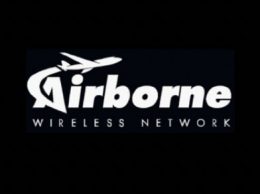SEC alleges pump-and-dump fraud at Airborne Wireless in Simi Valley
The U.S. Securities and Exchange Commission filed suit on March 2 against Simi Valley-based Airborne Wireless Network and seven of its shareholders and executives, accusing them of orchestrating a $45 million pump-and-dump stock fraud scheme.
The lawsuit was filed in federal court in New York. The defendants are Kalistratos Kabilafkas, Timoleon Kabilafkas, Panagiotis Bolovis, Eric Scheffey, Chrysilios Chrysiliou, Moshe Rabin and Edward Jack Daniels, who as company president is Airborne Wireless Network’s only remaining executive.
Daniels has not replied to calls and emails from the Business Times seeking an interview.
Airborne Wireless Network said it had a plan to connect aircraft in flight through wireless routers, bringing better connections for air traffic control and better internet access on the ground. But according to the SEC, the only thing the company really produced was publicity, in the form of press releases and paid advertising meant to pump up the share price.
The SEC complaint alleges that in 2015, Kalistratos Kabilafkas secretly purchased essentially all of the shares of a shell company that became known as Airborne Wireless Network, then deceived transfer agents and stockbrokers to transfer millions of shares to his co-defendants. Kabilafkas, Daniels and the others then “spent millions of dollars on advertisements that concealed that Airborne was a vehicle for Kabilafkas’ fraudulent scheme,” the SEC said in a March 2 news release.
During this promotional and advertising blitz, which lasted from 2015 through 2018, the seven defendants sold around 11.8 million shares for proceeds of more than $22 million, “much of which was kicked back to benefit the Kabilafkas family,” the SEC said. Airborne raised another $22.8 million from investors through public and private offerings, relying on what the SEC says were “false and misleading statements about the company.”
After those sales, the value of Airborne Wireless Shares plummeted to nearly zero. The ABWN stock opened the trading day on March 2 at .08 cents, or 8 hundredths of a penny, having lost nearly all the gains from a spike last month that took it to 0.16 cents per share.
In 2018, Airborne Wireless reduced the volume of its outstanding shares by a factor of 30,000 to 1, through a reverse split. Though a reverse split typically inflates the value of a stock, Airborne Wireless shares continued to drop in value.
Airborne Wireless typically traded at a few dollars per share between 2016 and 2018. But when adjusted for the 30,000-to-1 reverse split—which puts the old values on the same scale as the recent sub-penny prices—its value peaked in February 2017 at more than $117,000 per share, according to Yahoo Finance.
The SEC says it is seeking civil penalties, “disgorgement of ill-gotten gains plus interest,” and an injunction against future violations of securities laws. One defendant, Rabin, has not admitted or denied the allegations but agreed to a settlement involving a $125,000 civil penalty, an injunction against future violations and a ban on penny stock trading. The proposed settlement is awaiting court approval, the SEC said.











